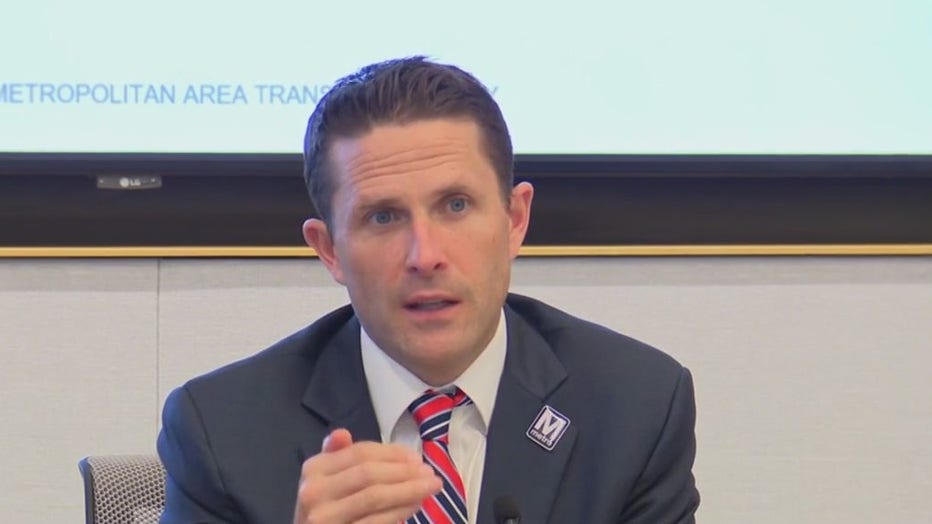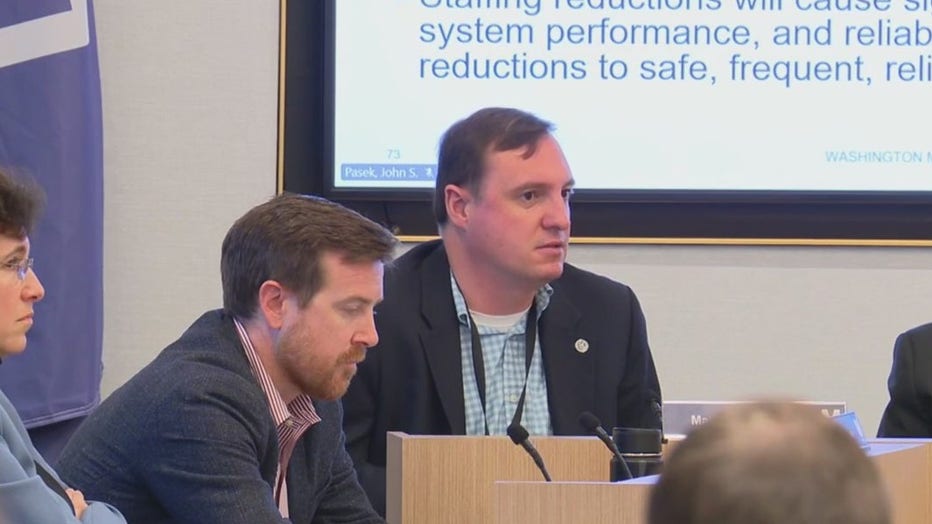Lack of Metro funding could lead to a 'transit death spiral:' WMATA
WASHINGTON - WMATA said it needs to fill a $750 million funding gap for the next fiscal year starting July 1, 2024.
At a board meeting Thursday, WMATA’s Board was briefed on what needs to happen to avoid drastic cuts.
One of the many changes customers could see is dramatic increases in the time between trains.
That could lead to more trains being full, drops in ridership, less revenue, more cars on roads, a so-called "transit death spiral," according to a slide in a WMATA presentation given Thursday.
Riders said they sincerely hope that doesn’t happen.
Erianne Fox said she’d have to evaluate her options.
"At that point, I would have to, but it would really depend on how long is it to walk, how much money do I have in my bank account. That type of thing," Fox said. "Probably, have to remain hopeful at this point, you know, public transit is definitely a godsend and definitely integral to living, especially in an urban environment."
WMATA is heavily funded by municipalities.
They asked for less funding during the pandemic and made the bottom line work thanks to pandemic funding.
Featured
Metro budget gap could mean layoffs, service cuts, WMATA says
WMATA says layoffs, a hiring freeze and service cuts could be just months away if a large budget deficit isn't addressed.
Now, the funding is out. They need higher contributions to pass a balanced budget, which is a statutory requirement.
Metro is having this conversation now because they need Maryland and Virginia’s legislatures to pass a law that allows those states to contribute more. But involving state legislatures only adds more uncertainty for WMATA.

Metro General Manager Randy Clarke said he can’t wrap his mind around the region not supporting WMATA.
General Manager Randy Clarke couldn’t say definitively when potential service impacts would happen. It could be before the new fiscal year starts on July 1, Clarke said, especially if there are questions about the legislative processes.
"I wouldn’t expect week 1 in January to have a significant impact, but if we’re into March without certainty, there’s no doubt about it. March is going to be a problematic month," said Clarke.
He added that the legislative component was almost more important than the funding conversation since the funding can’t happen without Maryland and Virginia’s legislatures passing laws.
Finance Chair Matt Latourneau said the WMATA Board has to come up with two budgets: one that assumes the contributions from states are sufficient, and one that assumes they’re not.
"At the end of the day, it is their decision. It’s a state decision, it’s the localities decision," Latourneau said.

Metro Finance Chair Matt Latourneau said the WMATA Board has to come up with two budgets.
Assuming there are dramatic cuts, WMATA’s modernization plans could also be impacted for some programs like the 8000-series trains.
Despite the uncertainty, Clarke remains optimistic.
He said he can’t wrap his mind around the region not supporting WMATA.
"We can’t have a great future without a healthy Metro," Clarke said. "I’ve yet to see someone say we don’t need Metro, and it’s not important."



